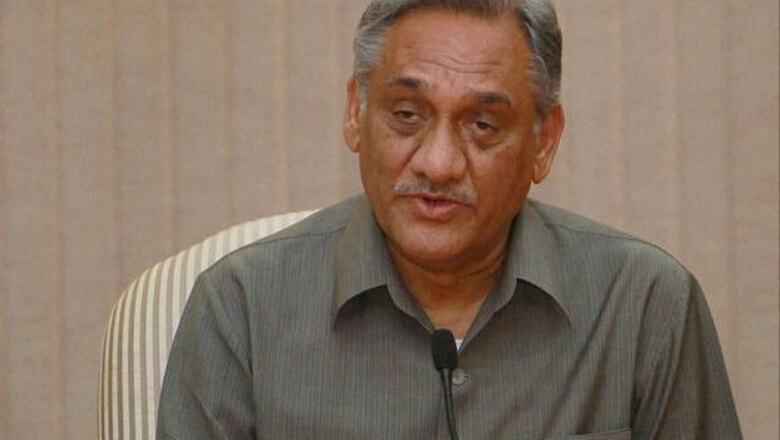
views
As temperatures soar in the national capital, the political heat generated by the prolonged Uttarakhand crisis is adding to the discomfiture of the Bharatiya Janata Party (BJP) leadership in Delhi.
The gentle buzz of the air-conditioner is the only thing that keeps the temperatures under control inside the prefab hut - a common feature in Lutyen’s bungalows these days - which double up as a local secretariat and personal office for most MPs.
The senior BJP leader so caught up in managing the political crisis in Uttarakhand is now clearing a fat pile of mails accumulated over a month. Supporters and party workers continue to saunter in in ones and twos.
“Un nau ka kya hoga (What about those nine),” someone in the room asked. The fate of nine Uttarakhand rebel Congress MLAs is on everyone’s mind following reports of their imminent induction into the BJP in the next one week.
“Nau ka kya hoga," the leader repeats the questions with a wry smile floating on his lips. After a brief pause he adds, “Nau do gyarah (They have vanished).”
But all that is easier said than done for wishes are not mere numbers.
What is evident a week after Congress leader Harish Rawat scripted a spectacular return to power in Uttarakhand, the sedimentary remains of a failed coup in the hill state is now starting to dawn on the BJP.Read: Silence at Jaya's House as Exit Polls Predict AIADMK Loss in Tamil Nadu
The biggest problem confronting the saffron brigade is: whether to take the nine rebels into the party fold. The nine have been doggedly pleading their case before the BJP leadership while eagerly awaiting for the much elusive call from party headquarters.
However, a simmering discontent in its rank and file in Uttarakhand had forced the BJP central leadership to keep in abeyance the induction of the now famous nine led by former CM Vijay Bahuguna.
The reasons are apparent. Firstly, Congress rebels would be natural claimants for party nominations in the upcoming elections.
Which means, in an assembly of 70, BJP will have to deny tickets to almost 15% of its trusted and loyal workers in elections slated in 2017.
Consider the case of Trivendra Singh Rawat, who is also the central observer currently in-charge of BJP ruled Jharkhand. Rawat had earlier worked closely with Amit Shah in Uttar Pradesh in the run up to the 2014 Lok Sabha elections.
Rawat lost the 2012 Assembly polls to Congress’ Umesh Sharma Kau from Raipur by less than 500 votes. Kau is among the nine rebel Congress MLAs now seeking both entry into and ticket from the BJP to contest next elections.
If indeed Kau manages to have his way, where does it leave a senior leader like Trivendra Singh?
Moreover, the very idea of accepting the likes Vijay Bahuguna and Harak Singh Rawat is a political anathema for a large section of the BJP leadership and cadre.
Bahuguna not long ago was the Congress chief minister who was accused by the BJP of gross mismanagement of rehabilitation and relief work after the 2013 Uttarakhand floods. Harak Singh, on the other hand, inured to innumerable controversies is culturally alien to the BJP.
The palpable unease within the BJP prompted Harish Rawat to recently rub it in when he said, “BJP is now being led by its new leader Dr Harak Singh Rawat.”
The growing unrest has forced the BJP central leaders to call a meeting of the Uttarakhand core group in Delhi on Wednesday.




















Comments
0 comment